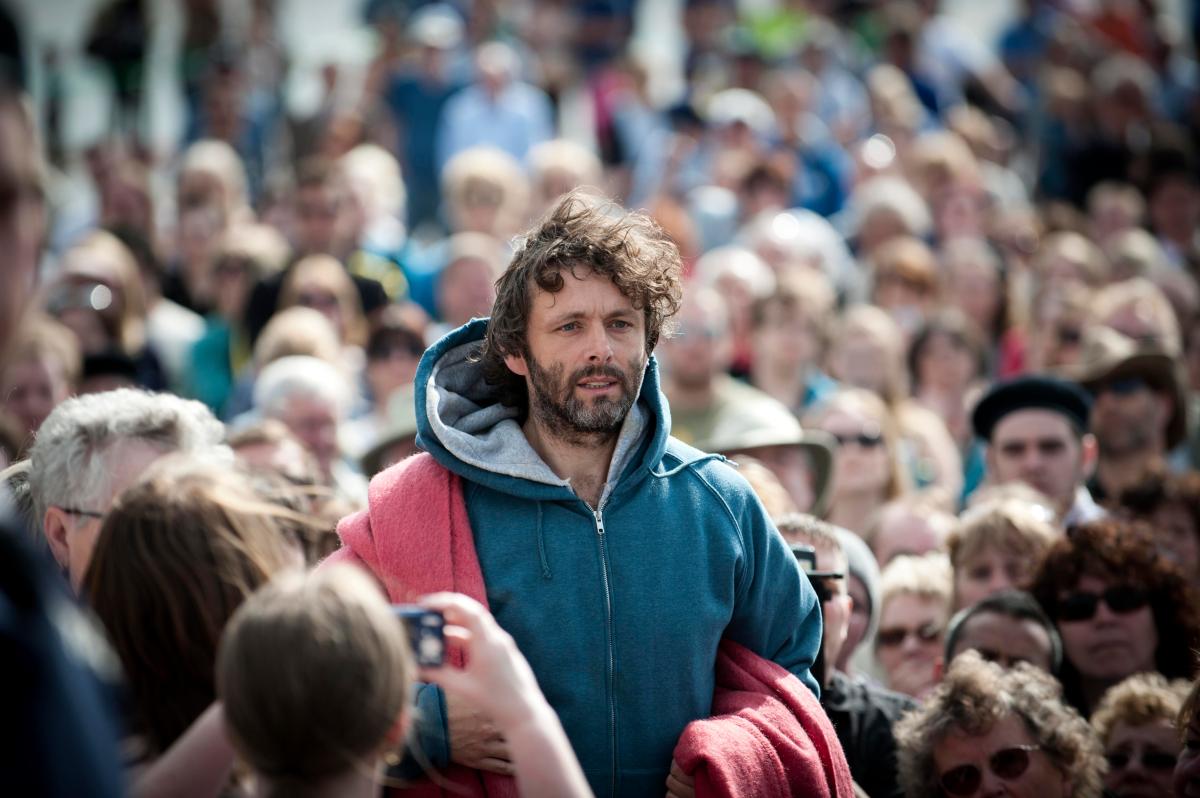Tomorrow’s culture will be made not by lone geniuses, but by vibrant coalitions and communities, finding new ways to collaborate and produce their work way beyond the confines of the established arts world – like the 1,000 people who together created The Passion in a Welsh steel town.
Any arts group that has a public remit should, I believe, think of itself as a community – an open community that people can relate to in a wide variety of ways. And a community involves a lot of communication – in many directions.
We’ve created a number of different ways that this can happen at the National Theatre Wales (NTW). By joining NTW TEAM anyone can become involved in the day to day activity of the company – and we now also have a TEAM Panel which feeds into the artistic and organisational decision making of the company – including sending representatives to board meetings.
The online social network is also an important place for us to listen and discuss – we call it the NTW Community and anyone can post discussions or opinions there. The writers’ group is a particularly lively forum – and one where people have plenty of opinions about what we’re doing at NTW. I’m on that group regularly responding to writers’ ideas. Sometimes it gets quite passionate, and even tough, but I think it’s great that people express their opinions and expect me to justify myself.
But perhaps most importantly of all, we try to ensure that everyone involved in any NTW project is open to talking and listening. Right now we’re resident on an island off the Welsh coast, Anglesey; we’re taken almost all of the company’s staff – including admin and finance teams – and relocated them here. Everyone is working out of a couple of shops we’ve rented in two of the towns and anyone can come in and chat to them. Our admin and finance staff are some of the best people we have for these chats – they really put people at their ease and they know all about the various ways that anyone can get involved in NTW.
Probably our most famous production was The Passion, where actor-director Michael Sheen, writer Owen Sheers and director-designer Bill Mitchell collaborated to re-imagine the traditional Easter Passion play in Michael’s hometown of Port Talbot.
The production was the finale of our launch year program – the Theatre Map of Wales – where we created a new production every month for a year, each one in a different location in Wales, and each using a different approach to theatre making. The Passion involved a professional cast of 15 and a community cast of 1000 people. The performance lasted three days, and was a secular re-telling of the story – focusing on a man who wants to listen to people, and how that act of listening changes everything.
I guess, overall that’s a metaphor for what we’re trying to achieve at NTW. Throughout the weekend the audience grew and grew, by the final stage of the performance there were 12,000 people on the street watching the show. Lots of people from the town have gone on to other things as a result of their experience with the show.
I don’t think NTW is unique, but we’ve been able to draw on a range of good work and focus it in a way that responds to the particular needs and personality of Wales. A big thing for us has been our focus on location – we don’t just tour work, we make it where it needs to be made. Whether it’s a community project, or a show with a fully professional cast, or (like many of our shows) something in between, everyone involved will usually relocate to the place where the show needs to be made. It’s remarkable the impact that bringing a group of artists together in a place can have on that place. Equally importantly we make a long-term commitment. A show might be a highpoint of our involvement in a community, but we find all sorts of ways to stay involved with each place we’ve worked in.
Theatre, and all arts, are in a constant state of change – but sometimes the institutions that we create to house or encourage the arts can lag behind. One of the big challenges for theatre venues and traditional companies at the moment is that less and less work is made to fit on stages – increasingly theatre is interactive, located, immersive, partly online, intimate or epic!We need companies that are flexible and able to respond to these ways of making theatre. Theatre for me has always been a collaboration between the theatre makers and the audience – theatre simply doesn’t happen until the audience is there, so the current move towards more participatory work, and more immersive or interactive work is consistent with the basic contract of theatre between performer and audience – it builds on and enriches this contract in exciting and creative ways.
Equally, since many of us live much of our lives now in the digital realm, theatre needs to embrace the shapes and processes of the digital in a wide range of ways. There are some great theatre companies like Blast Theory who have explored the digital and the interactive in depth for a long time, and there’s a host of exciting young companies for which the digital is natural territory, but the mainstream of theatre still tends to see the digital as an add on rather than a central concern and opportunity.
NTW has also embraced the digital realm from Day One – our company was founded with the creation of an online social network where we encouraged people to share their ideas about what NTW could do. That network now has over 4,000 members, and thousands more people who use it as a source of information. I think the network has had an important role in reinvigorating the fringe theatre and performance scene in Wales.
Another key area of challenge, and possibility, for theatre is in how we respond to our diverse, mobile, globalised society. There’s still too little work on stage that really reflects the cultural diversity of most of our cities; as a collaborative art form, theatre should be a place where the possibilities of cross-cultural collaboration are being explored and discovered. I think we’ve only begun to touch on these possibilities.
John McGrath, Artistic Director, National Theatre of Wales (NTW), will be in Melbourne as the George Fairfax Fellow for 2013 and guest of Deakin University’s Arts and Entertainment Management Program.
Kenneth Myer Lecture
Make Everything Risky: Theatre in the age of Google, occupy and the Arab Spring
When: Tuesday 2 July 2013, 5.30–7 pm.
Where: ANZ Pavilion, The Arts Centre Melbourne
Tickets: $12/$15
Free tickets for 10 lucky ArtsHub subscribers.
Workshop
Things could get messy: making site-specific work
Facilitated by Erin Milne, Producer & Arts Management Consultant.
When: Tuesday 2 July 2013
9.30 am-1 pm, including lunch by Kinfolk cafe
Where: Level 2, Donkey Wheel House, 673 Bourke Street, Melbourne, VIC 3000
Tickets: $75/$45
For more information contact Deakin University’s Arts Participation Incubator.:





